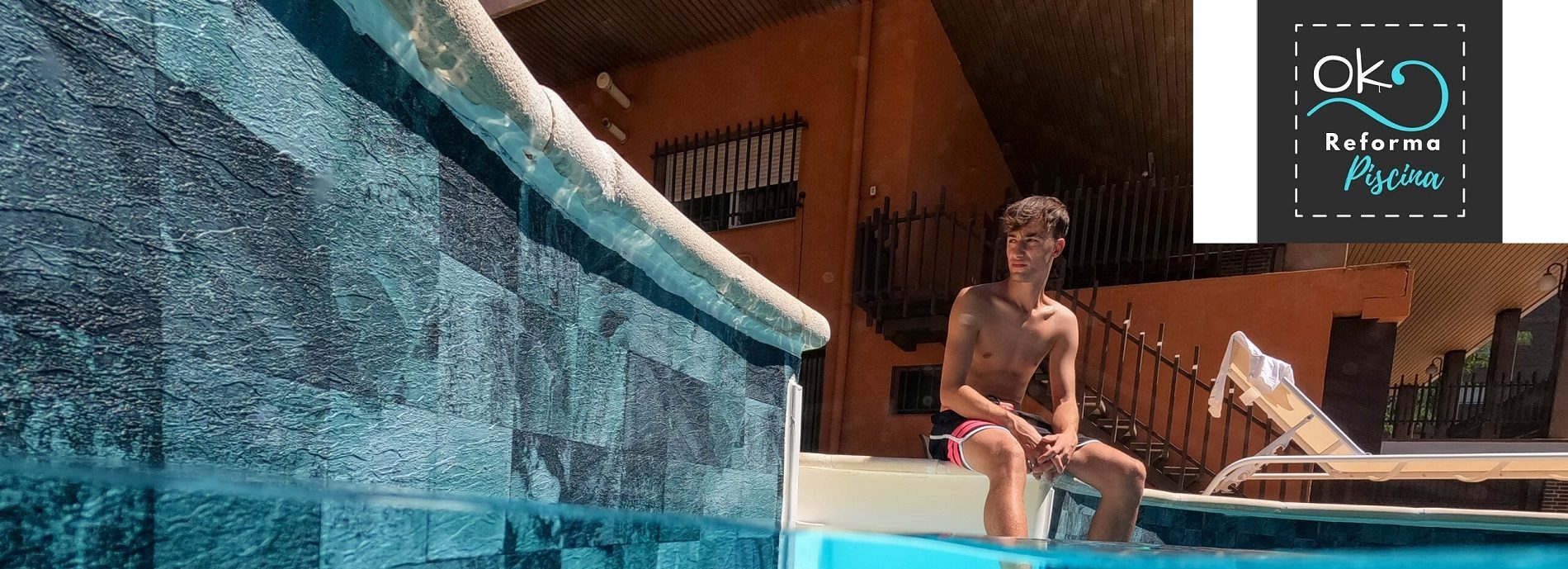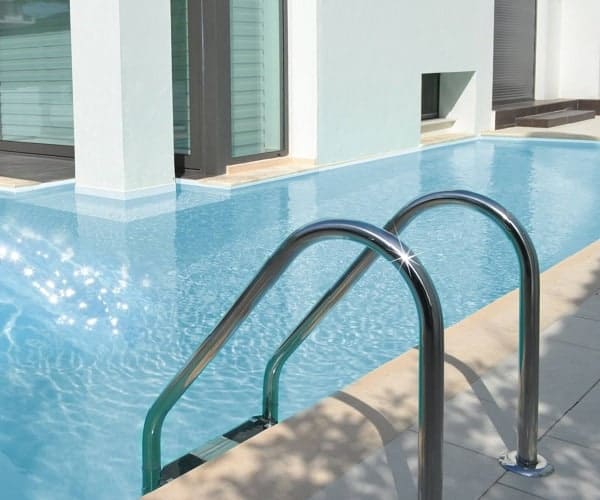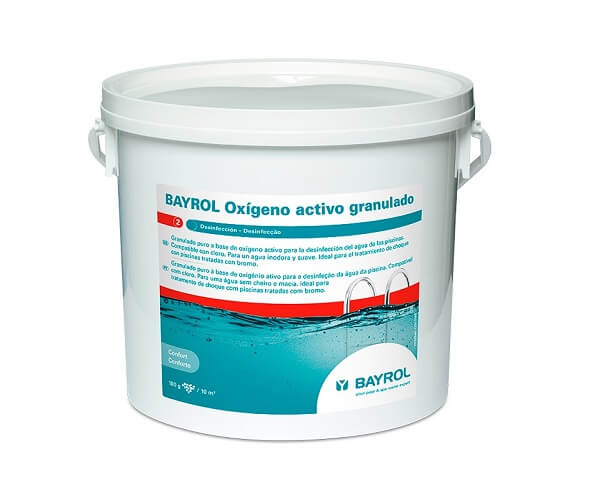
Table of contents of the page
En Ok Pool Reform and within Essential Pool Chemicals about: Everything you need to know about chlorine for liner pools.
What is chlorine and what is it for in a liner pool?
Chlorine is a chemical used to clean pool water and make it safe for swimming. It works by killing bacteria and other microorganisms that can cause disease.
- Chlorine is usually added to pools in the form of tablets or granules, which are then dissolved in the water.
- The amount of chlorine required will vary depending on the size of the pool, the climate, and the number of people using it.
- Some pool owners prefer to use automatic dispensers, which release a specific amount of chlorine into the water on a regular basis.
- Others choose to manually add chlorine to their pool using a test kit to monitor levels.
- Regardless of how it is added, chlorine is an essential part of keeping a pool clean and safe for swimmers. Although there are others Alternative disinfection treatments for pool water.
What is the best chlorine for a liner pool?
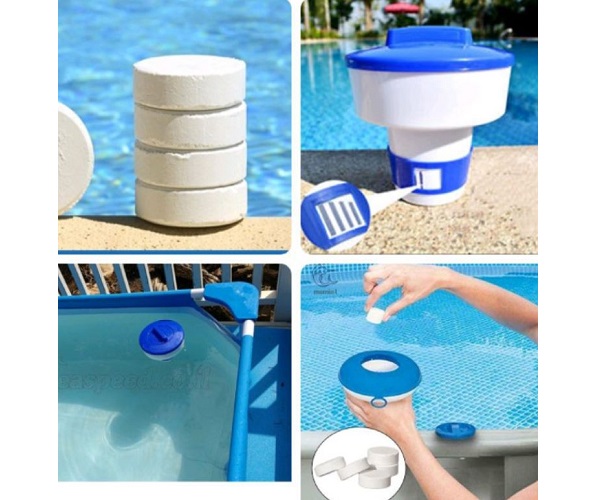
What are the best chlorine tablets for swimming pools?
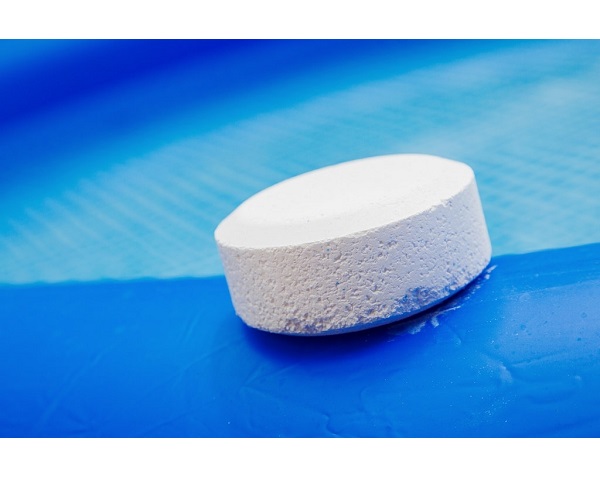
What is the best chlorine for removable pools?

What type of chlorine to use for swimming pools: which chlorine is better?
Some pool experts consider dichlor or liquid chlorine to be the best and safest chlorine to use in a vinyl liner pool.
- Dichlor dissolves quickly and liquid chlorine (bleach, also known as sodium hyperchlorite) distributes quickly through the water.
- Trichlor and calcium hypochlorite (cal-hypo) should be avoided as they can bleach and weaken coatings.
Buy chlorine for liner pools
Chlorine price for liner pools
How is chlorine used to treat liner pool water?
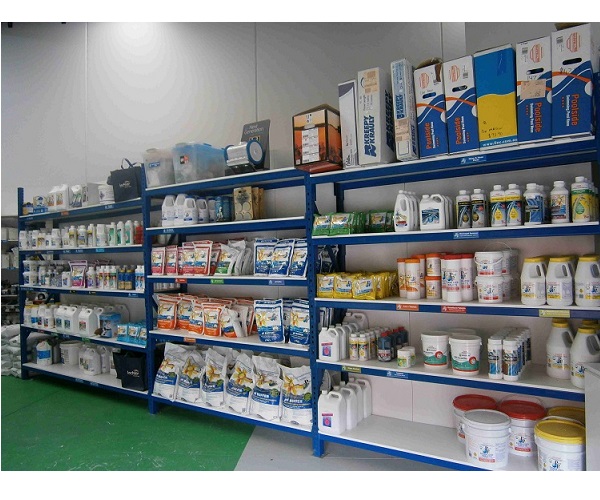
How to store chlorine tablets and pool chemical?

Can you use chlorine and anti-algae at the same time?
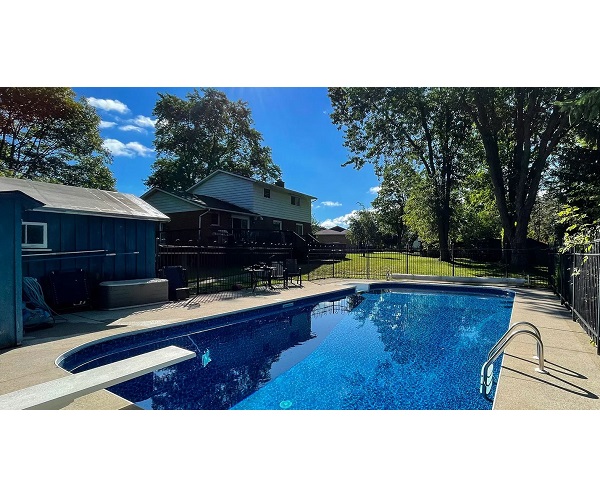
What maintenance does a reinforced liner pool need?
Chlorine is used to treat the water in a liner pool to kill bacteria and protozoa found in the water. It also helps prevent algae growth.
Chlorine is added to the water of the liner pool, always depositing the product inside the skimmer basket or using a chlorine pump.
- The chlorine pump works by circulating pool water through a chamber containing powdered chlorine.
- Chlorine dissolves in the water and mixes with the salt in the pool water.
- So, chlorine treats the pool by killing bacteria and protozoa found in the water and also helps prevent algae growth.
- Lastly, to maintain the proper level of chlorine in your water, you should periodically test the chlorine level and adjust it if necessary.
Chlorine tablets can damage your pool liner if not placed in the skimmer basket.
The reason is that chlorine tablets are a strong chemical compound.
If you use chlorine tablets in your pool and they come into contact with your pool liner, they can cause it to become brittle or discolor.
This can lead to the liner becoming damaged over time, which could ultimately lead to leaks in the liner or failure of the entire pool structure itself.
How much chlorine should be added to a liner pool?
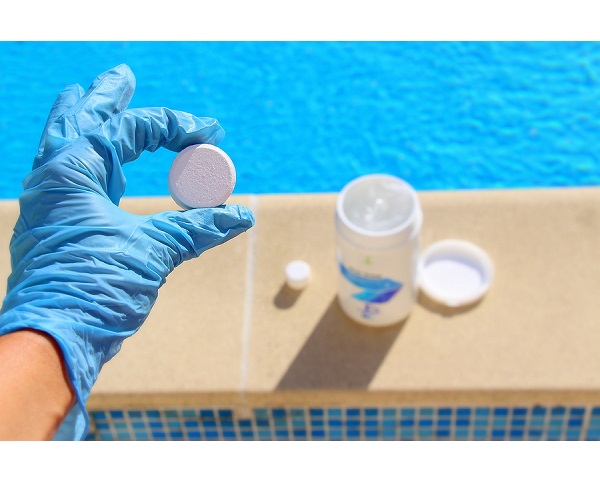
What is the level of the different values of chlorine in swimming pools?
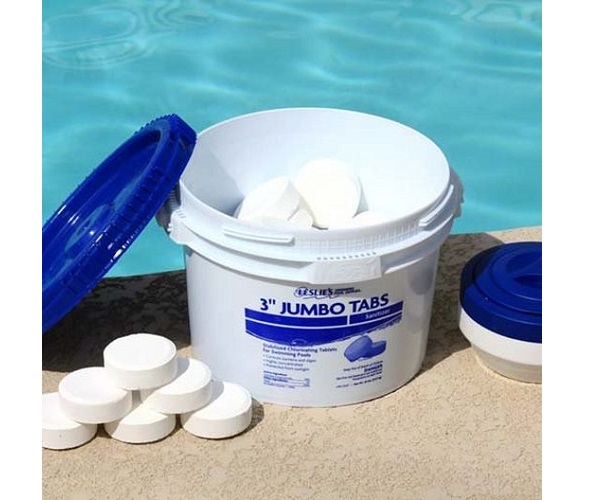
Pool chlorine level: how much chlorine does a pool need?

Ideal chlorine level in a saline pool: saltwater pools also contain chlorine
Adding chlorine to a liner pool is very important to keep the water clean and safe. However, it is important not to add too much, as this can damage the liner.
- The ideal is to add an amount of chlorine that corresponds to the pool size.
- For example, if the pool has a volume of 5.000 liters, about 50 grams of chlorine should be added. If the pool has a volume of 10.000 liters, about 100 grams of chlorine should be added.
- This ensures that the water remains clean and safe for all users.
How is chlorine distributed in a liner pool?
In a liner pool, chlorine is distributed through the water through a process called diffusion.
- Diffusion is the movement of molecules of a substance from an area of higher concentration to an area of lower concentration.
- In the case of the pool, chlorine is found in higher concentration in the water that is being recirculated through the filtration system.
- As water circulates through the system, some of the chlorine molecules diffuse into the water being filtered. This helps maintain a constant chlorine level throughout the pool.
- The diffusion process is also used to distribute other Chemicalsand bromine and alkalizing, in the swimming pools.
What effects does chlorine have on people and pets?
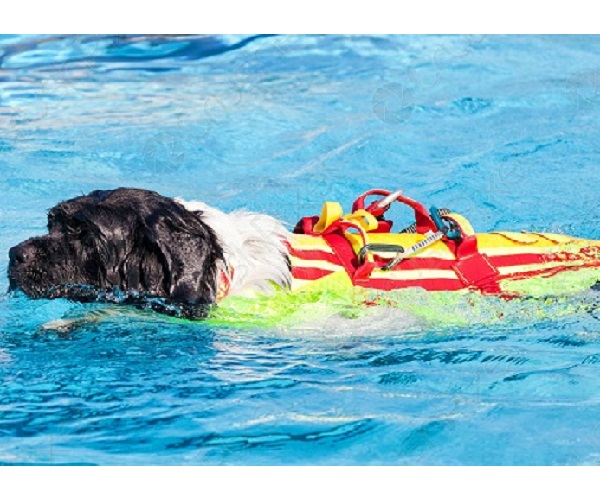
Pet pool safety: tips to avoid and how to act against drowning
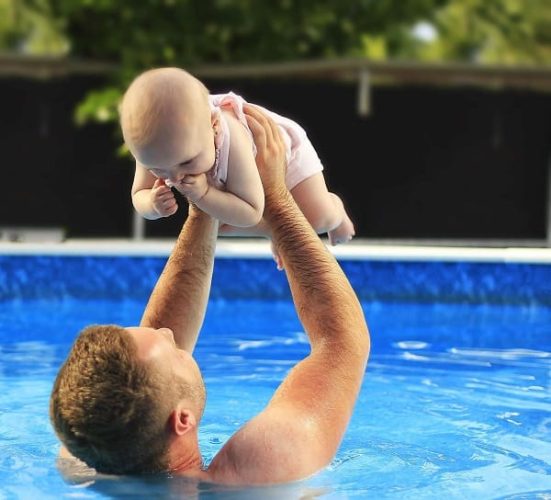
Pool regulations, rules and safety tips
Chlorine is a chemical used to treat water and kill bacteria. However, chlorine can also be a threat to the health of people and animals.
- In high concentrations, chlorine can be toxic to the liver, lungs, and nervous system.
- People who inhale large amounts of chlorine may experience difficulty breathing, coughing, burning eyes, and redness of the skin.
- Pets are also sensitive to chlorine and can become ill if exposed to large amounts of this substance.
- Therefore, it is important to avoid contact with chlorine and maintain adequate ventilation when near sources of this chemical.
How to eliminate excess chlorine in a liner pool?
If you have an inground pool with a liner, you may notice that the water has a strong chlorine odor. This is because the liner material is very porous and absorbs chlorine.
- To remove excess chlorine, you will need to use a chemical oxidizer such as chlorine dioxide or ozone.
- These oxidants will break down the chlorinated compounds in the water, making it safe to swim in again. Be sure to carefully follow the manufacturer's instructions when using these products, as they can be harmful if used incorrectly. With a little effort, you can easily remove the strong chlorine smell from your lined inground pool.
Chlorine is a very important chemical for the care of liner pools, as it helps eliminate bacteria and algae. It is important to follow the manufacturer's instructions on how much chlorine needs to be added, as well as how to properly distribute it in the pool. Excess chlorine can be harmful to human and animal health, so it is important to be careful not to use too much. If there is excess chlorine in the pool, it is recommended to dilute it with fresh water before allowing anyone to enter the pool.
